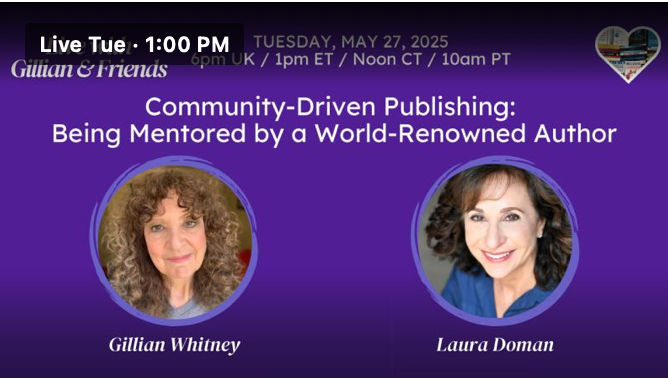From the Booth to the Boardroom: Voiceover Tips to Level Up Your Public Speaking
- May 25, 2025
- 4 min read
Why Entrepreneurs Should Steal Public Speaking Tips from Voice Actors (Seriously, It Works)
If the idea of public speaking makes you want to crawl under your desk and email your presentation instead—you're not alone. But what if I told you the secrets to commanding a boardroom aren’t so different from what I use to voice a sassy robot, a heartfelt narrator, or that commercial you swear you’ve heard before but can’t quite place?
As a working voice actor, my voice is literally my business. But over the years, I’ve realized the same techniques I use behind the mic can dramatically improve how anyone presents themselves in front of an audience—whether you're pitching to investors, leading a team meeting, or delivering a TED Talk (or, you know, just trying to not sound like a sentient voicemail system).
So grab a warm beverage, take a comfy seat, and let me walk you through some tried-and-true public speaking tips straight from the voiceover booth.
Your voice is a business tool—use it like a pro, not like you're ordering drive-thru.

“Your voice isn’t just how you sound—it’s how you connect, lead, and leave a lasting impression.”
1. Breathe Like a Pro (or at Least Like You’re Not Being Chased)
Breath control is the unsung hero of both voice acting and public speaking. Think of it like fuel for your vocal engine. Without good breath support, you end up speaking too fast, trailing off at the end of sentences, or sounding like you’ve just sprinted up a flight of stairs mid-pitch (been there).
Professional voice training helps you breathe intentionally, support your voice, and control your pace. It’s what allows you to sound clear, calm, and confident—even if you're internally panicking about that slide that loaded funny.

2. Dynamic Delivery Beats Death-by-Monotone
In voice acting, we live and die by our dynamic range. Volume, pitch, rhythm, tone—it’s how we keep a listener engaged when they can’t see us. The same rules apply to public speaking.
Want your audience to stay awake and actually remember what you said? Vary your vocal delivery.
Emphasize key points. Pause for effect. Whisper when it's dramatic. Speak up when you're excited. (And please—avoid monotone unless you’re being ironic.)
Pro tip: Record yourself practicing a presentation. If you sound like the “bueller... bueller...” teacher, don’t worry—it’s fixable.
3. Get Physical—Even If You're on a Zoom Call
Here’s a voice acting secret: we’re rarely still in the booth. I’ve waved my arms like a windmill, crouched like a frog, and gestured like I was winning an Oscar—all to get the right read.
Why? Because physicality influences vocal performance. How you sit, stand, move, and gesture impacts the tone and energy of your voice. Try slouching and then saying “I’m thrilled to be here.” It just doesn’t land, right?
So the next time you’re practicing a pitch, get your body involved. Stand tall, use your hands, and let your physical presence support your vocal delivery. Even if no one can see you, they will hear the difference.

4. Microphone Mastery = Message Clarity
Okay, so this one’s more for those of you doing webinars, podcasts, or remote presentations (hello, digital entrepreneurs!). Microphone technique is everything. Get too close, and you’re suddenly Darth Vader. Too far, and your message fades into the void.
Test your mic, be mindful of your proximity, and match your vocal delivery to the setting. If you're trying to sound warm and personal, lower your volume slightly and lean in—yes, like a fireside chat without the campfire.
5. Shake the Tension Out (No, Really)
Vocal tension is a sneaky little gremlin. It can make you sound tight, strained, and oddly robotic—even when your message is heartfelt. Voice training teaches you how to release that tension and speak with a relaxed, natural tone.
Before speaking, try a quick warm-up: shake out your limbs, hum a little, do some tongue twisters (my personal fave: “unique New York”). The more relaxed your instrument (a.k.a. you), the better you’ll connect with your audience.

The Bottom Line: Your Voice is a Muscle—Train It
Voice actors spend years honing their craft, not just to sound “good,” but to connect, persuade, and entertain—often all in 30 seconds or less.
Entrepreneurs, leaders, and speakers can tap into the same toolkit.
So whether you're stepping up to the mic or the podium, treat your voice like the powerful tool it is.
Practice breath support.
Play with pacing.
Move your body.
Vary your tone. And above all—be yourself. Just, you know… with better mic technique.
Laura's Quick Tips
Breathe with purpose
Vary your vocal tone and rhythm
Engage your body
Master your mic setup
Warm up to shake off tension
Want to take your speaking skills to the next level? Book a consultation and let’s chat (literally) about how voice training can improve your public speaking, pitch meetings, and even your everyday conversations.
Laura's Quick Tips to Other Resources
Upcoming Events

Live on LinkedIn!
Tuesday, May 27 at 1pm EST
Join Gillian Whitney & Laura Doman as we explore the collaborative publishing model behind "The Most Amazing Marketing Book Ever" - and what it's like to be mentored by world-renowned marketer & author Mark Schaefer.
If you've ever wondered what it's like to work alongside established thought leaders or contribute to publishing projects, Gillian and I will show you the power of community-driven creativity.
Want to learn more? Let's talk!
I'm Laura Doman, a voice & TV/film actor and video communications coach. As an actor, I create memorable characters that tell my client's stories well, from the friendly CEO to your sassy best gal pal dispensing real-world advice. As a coach, I help you become more comfortable and charismatic on camera in videos, presentations, and online appearances.















